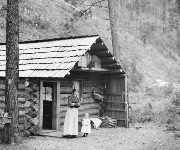Holiday letting: three factors to consider before investing

Holiday lets have a key tax advantage over traditional buy-to-let investments, but they aren’t without risk. Peter Harrison of Sykes Cottages explains.
Holiday letting has hit the headlines in recent years thanks to the rise in the number of people renovating their properties to appeal to the UK’s staycationers.
As we’re now in peak holiday season many people are looking to get a share of the financial and lifestyle rewards.
We’ve found many owners opted to start after wanting to take a break from their hectic work routines.
A more positive outlook?
While the buy-to-let market is increasingly being targeted by the taxman, holiday letting poses the perfect avenue for generating income from property, more so than ever before.
As explained in this piece, holiday homes are taxed differently to other kinds of buy-to-let investments as they aren’t affected by the reduction in mortgage interest relief.
What’s more, while the forecast for the 2018 landlord market performance has recently been revised down, staycations in the UK are reportedly on the rise.
This makes it an interesting time to look at the opportunities available in the holiday let sector if you have an interest in property investment.
3 key considerations
Of course, there are costs you need to be aware of when becoming a holiday let owner.
To help you understand more about what’s involved, and whether you do want to ditch the 9-5 job, we’ve include three key factors to consider.
1. Consider your costs
Whether you’re renovating an outbuilding or annexe from scratch or buying a property specifically to let out – be aware of any initial costs.
It’s important to calculate any renovation costs before committing to starting the project.
If you’re looking to earn more from your property, think about adding luxury features like a hot tub, or tech such as built-in speakers which are always popular with guests.
Spending more money on these should mean you can charge more per week.
Factor monthly running costs, such as cleaning and insurance, into your pricing structure and have your property ready for bookings at the start of the year.
Summer holidays are the busiest times, but 36% of people book ahead in January, February and March.
2. Think about transferable skills
Put your skills from your previous career to good use.
Owning a holiday let gives you the chance to provide excellent customer service, greeting guests with a smile and being on hand to offer advice.
Also, make the most of any marketing or sales experience.
Getting your property to stand out can be difficult so make sure you use a good selection of photos and write a compelling summary of all your property has to offer.
3. Fitting into your existing lifestyle
But it’s not all about the potential revenue: owners can also enjoy a more flexible lifestyle.
Managing a holiday let gives you more control over your time, allowing you to choose your own working hours.
It’s up to you how much time you dedicate – signing up to an online agency means your property reaches as many potential visitors as possible, so you don’t have to search out potential guests.
Outsourcing cleaning or handover can also free up your diary.
Peter Harrison is the Chief Commercial Officer at holiday lettings firm Sykes Cottages.
Most Recent
Comments
Be the first to comment
Do you want to comment on this article? You need to be signed in for this feature








